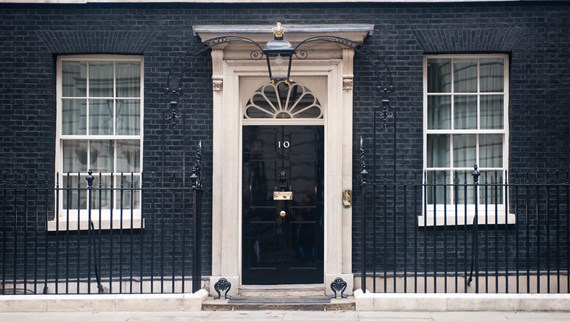Autumn Statement 2023: drizzle with sunny intervals…
Insight

Aside from a headline-grabbing reduction in National Insurance Contributions (NICs), Jeremy Hunt’s 2023 Autumn Statement is more notable for what it omitted than for what it included.
Many had expected cuts to income tax, corporation tax and stamp duty land tax (SDLT), or shake-ups to inheritance tax, capital gains tax and the UK’s "non-dom" remittance regime. These were all notable absentees from yesterday’s budget. However even the reduction in NICs rates, while a positive development for individuals on the face of things, is unlikely to compensate for the continued freeze in income tax and NICs thresholds, which puts more individuals into higher rates of tax and effectively increases the overall tax burden for many.
Rather than making sweeping changes to the UK’s tax system, the Chancellor instead concentrated on tinkering with existing tax reliefs and incentives. These financial sweeteners look to be largely aimed at continuing to incentivise investment in UK businesses, with the extension of key reliefs including the Enterprise Investment Scheme (EIS) and Venture Capital Trusts (VCT) regimes and full expensing of capital allowances. There was also a focus on tax compliance, with steps to make reporting more streamlined as it moves towards a fully digital system, the introduction of tougher penalties for promotors of tax avoidance and the doubling of maximum sentences for tax fraud.
The key measures announced in the 2023 Autumn Statement include:
- NICs rates will be reduced. The main rate of primary Class 1 (employee) NICs will reduce from 12 per cent to 10 per cent from 6 January 2024. Class 4 (self-employed) NICs will also reduce from 9 per cent to 8 per cent from 6 April 2024 and self-employed individuals will no longer be required to pay Class 2 NICs.
- Full expensing of capital allowances will be made permanent. As mentioned in our Spring Budget 2023 briefing (here), this regime allows businesses investing in qualifying plant and machinery to qualify for a 100 per cent tax deduction for "main rate assets", including warehouse, electrical and office equipment. The regime was previously due to expire on 31 March 2026 but is now indefinite.
- Business rates relief will be extended. The small business multiplier, which sets the overall business rates payable for a commercial premises, will be frozen for a further year and the 75 per cent discount on business rates up to £110,000 for retail, hospitality and leisure businesses will be extended for another year.
- Audio-visual creative tax reliefs and (Research & Development) R&D reliefs will be enhanced. Film, TV and video games tax reliefs will be replaced with broader refundable expenditure credits, available from 1 January 2024. The R&D relief regime will also now include a higher rate of tax credit for eligible small and medium-sized businesses.
- The time limit to notify Enterprise Management Incentive (EMI) options will be extended for options granted on or after 6 April 2024. The current time limit of 92 days will be extended to 6 July following the end of the tax year in which the options are granted.
- The Enterprise Investment Scheme (EIS) and Venture Capital Trust (VCT) tax incentive regimes’ "sunset clauses" will be extended. These clauses currently limit income tax relief to shares issued before 6 April 2025 but relief will now continue to apply to shares issued before 6 April 2035. It is worth noting that Seed Enterprise Investment Scheme (SEIS) tax relief was not subject to the same 2025 deadline, so no equivalent extension was needed for that regime.
- Changes to Stamp Duty and Stamp Duty Reserve Tax (SDRT) will remove the 1.5 per cent charge on issues of securities into depositary receipt systems and clearance services. From 1 January 2024, the growth market exemption will also be extended to cover smaller, innovative growth markets and Financial Conduct Authority-regulated multilateral trading facilities will also be given access to the exemption.
- The Construction Industry Scheme (CIS), which can impose withholding tax at up to 30 per cent on payments for construction services, will now require applicants to show VAT compliance in addition to compliance with other taxes before HMRC will grant exemption from withholding tax.
- A new criminal offence will be introduced for promoters of tax avoidance schemes who continue to promote schemes after receiving HMRC stop notices. HMRC will also be given new powers to disqualify directors of companies promoting tax avoidance and the maximum criminal sentences for tax fraud will be doubled.
This publication is a general summary of the law as at the date of publication. It should not replace legal advice tailored to your specific circumstances.
© Farrer & Co LLP, November 2023





